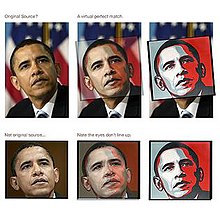Are Swedish Police Violating Copyright Law In Creating Shoe Database?What next? Criminals declaring copyright and trademark secrets so that blood samples can't be taken and their names can't be recorded? Give me a break!
from the if-the-shoe-fits dept
Sweden has certainly been an interesting country to watch on copyright issues. Home of The Pirate Bay, the original Pirate Party, and an awful lot of people who seem to feel pretty strongly that copyright law is out of control, there are still plenty of Swedes who feel the opposite way and support stronger copyright law. It often appears that law enforcement in Sweden is strongly aligned with those interests, working hard to prosecute The Pirate Bay and having staff members that seem to jump back and forth between the police department and the entertainment industry.
So, it's a bit amusing to find out that the Swedish National Police may be in a bit of hot water themselves after building a national "shoe database" (Google translation from the original Swedish) for use in tracking what kinds of shoes make what kinds of tracks. But how did they build the database? They just went online and downloaded pictures from various websites.
And it turns out that might not be legal.
The police claim that the law lets them ignore copyright in solving crimes, but an intellectual property professor quoted in the article notes that such an exemption only applies in the direct police investigation of a specific crime -- not for the sake of building up a general database. The professor suggests that this appears to be a clear violation of Swedish copyright laws.
While I do think it's silly that this should be considered infringement (a database of shoe treads? really?), I do find it amusing when organizations that always promote themselves as strongly pro-copyright discover how that can come back to bite them.
When a student goes to the library, finds a book with material he needs, he should be able to go over to a copy machine and xerox the page rather than be forced to sit and write it out by hand because "it is copyright protected". The student isn't making any money off the copy. The owner of the copyright isn't going to sell a big book just because the student wants to hang on to a page of material. Rather than put roadblocks in the way, the industry should digitize and sell the student the page at a penny a copy. They would be amazed at how fast the dollars would roll in!
Artists who want to dress up Mickey Mouse in a pirate's outfit shouldn't have to deal with Disney lawyers! Once something is published, it should be grist in the mill for other creators to take it and make wonderful new creations out of it. The idea that you could "fence off" something and have "property rights" which prevents others from using that as starting material for something else is crazy.

Take the classic example of Shepard Fairey using an Associated Press photograph by freelance photographer Mannie Garcia as the base on which he made his Obama "Hope" poster. Sure he started with a photo, but his poster isn't "a photo". The photo is like buying a box of crayons. The colours don't "belong to" the crayons. The crayon is the material which is shaped into the picture. The underlying photo has been so re-shaped it isn't even obvious that it started as a photo. Consquently, in my non-legalistic mind, that is fair use and there is not "copyright" claim by the original photo on the poster.


No comments:
Post a Comment